Hidden Treasures of NRW: Minden
Minden is a small town situated about 85 km north-east of Paderborn. The town extends along both sides of the River Weser and is surrounded by Wiehen hills. The Wiehen hills descend to the North German Plain which extends till the North Sea. Sitting along the banks of river Weser made for a very beautiful and peaceful experience.
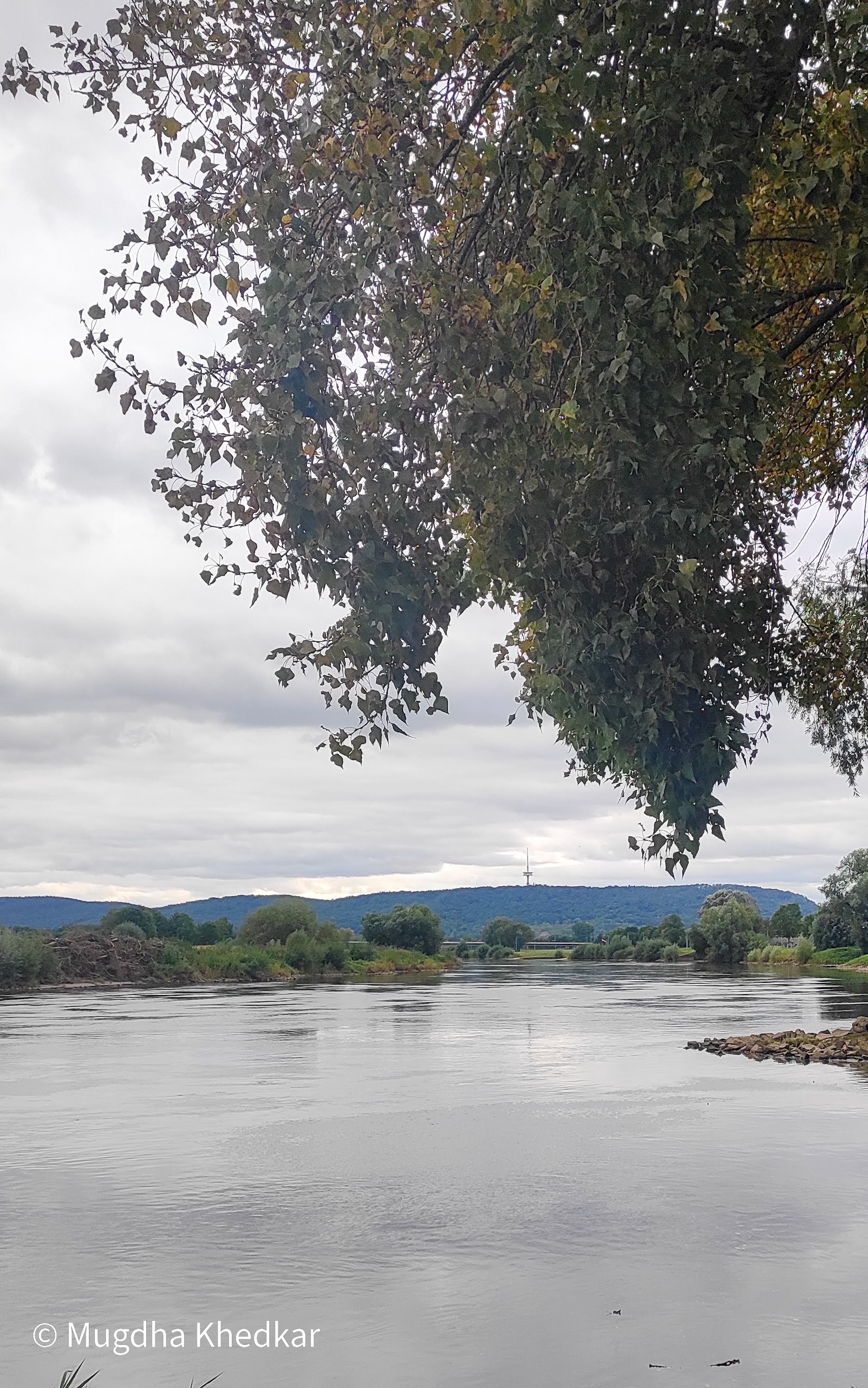
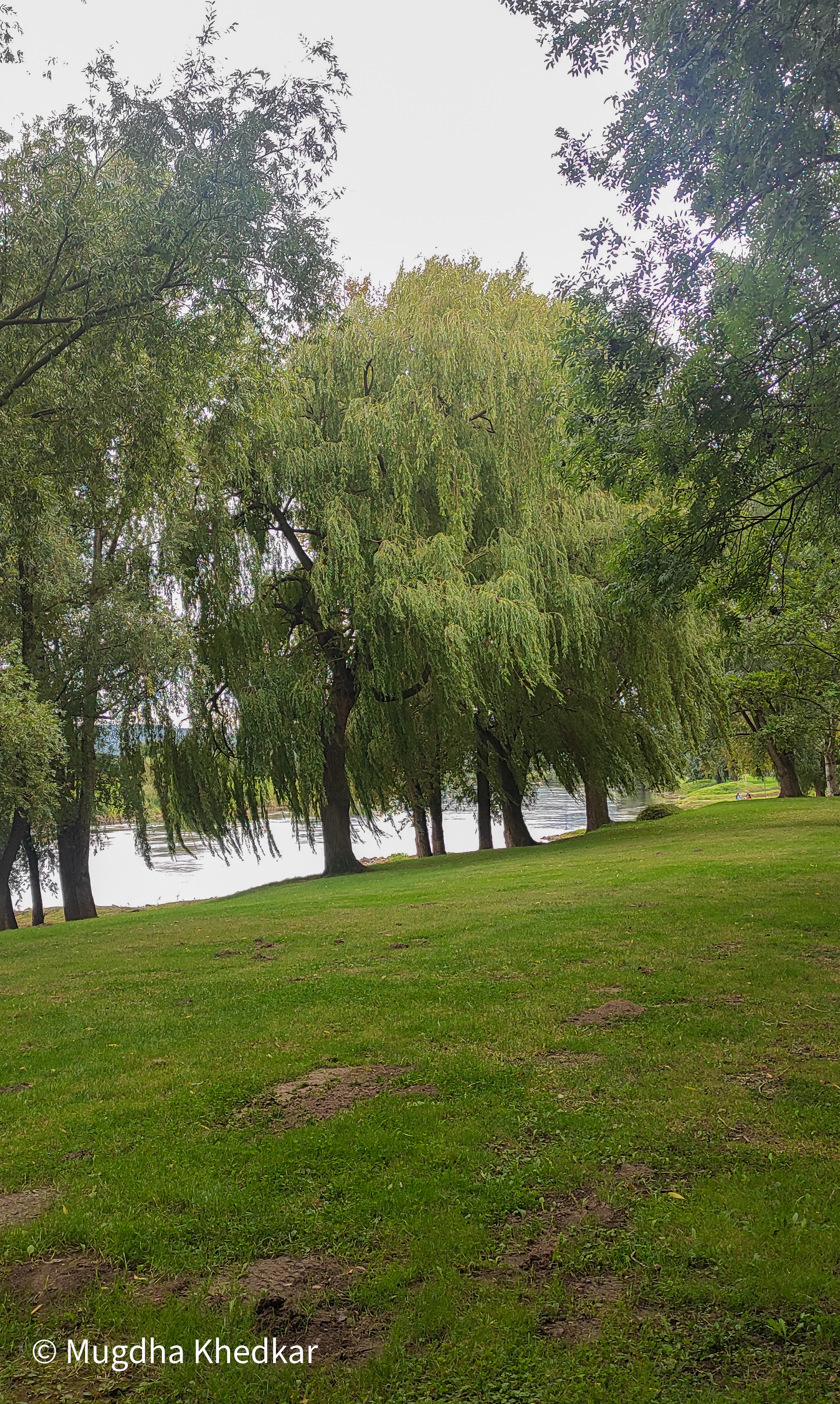
After spending some more time with nature, it was time for my favorite part: walking by the beautiful old town. I have to be honest, every such walk is almost like a History lesson and in about a minute you will see why. The streets were gorgeous and I’m afraid the photos below do not do justice to them. I was spellbound at the simplicity of the town: just half-timbered houses on both sides of the street, and yet so elegant. If you have someone special in your life, walking on such beautiful streets will surely make you miss them. Walking along this antique part of the town, listening to slow romantic melodies has to be one of the best experiences I have ever had in my life.
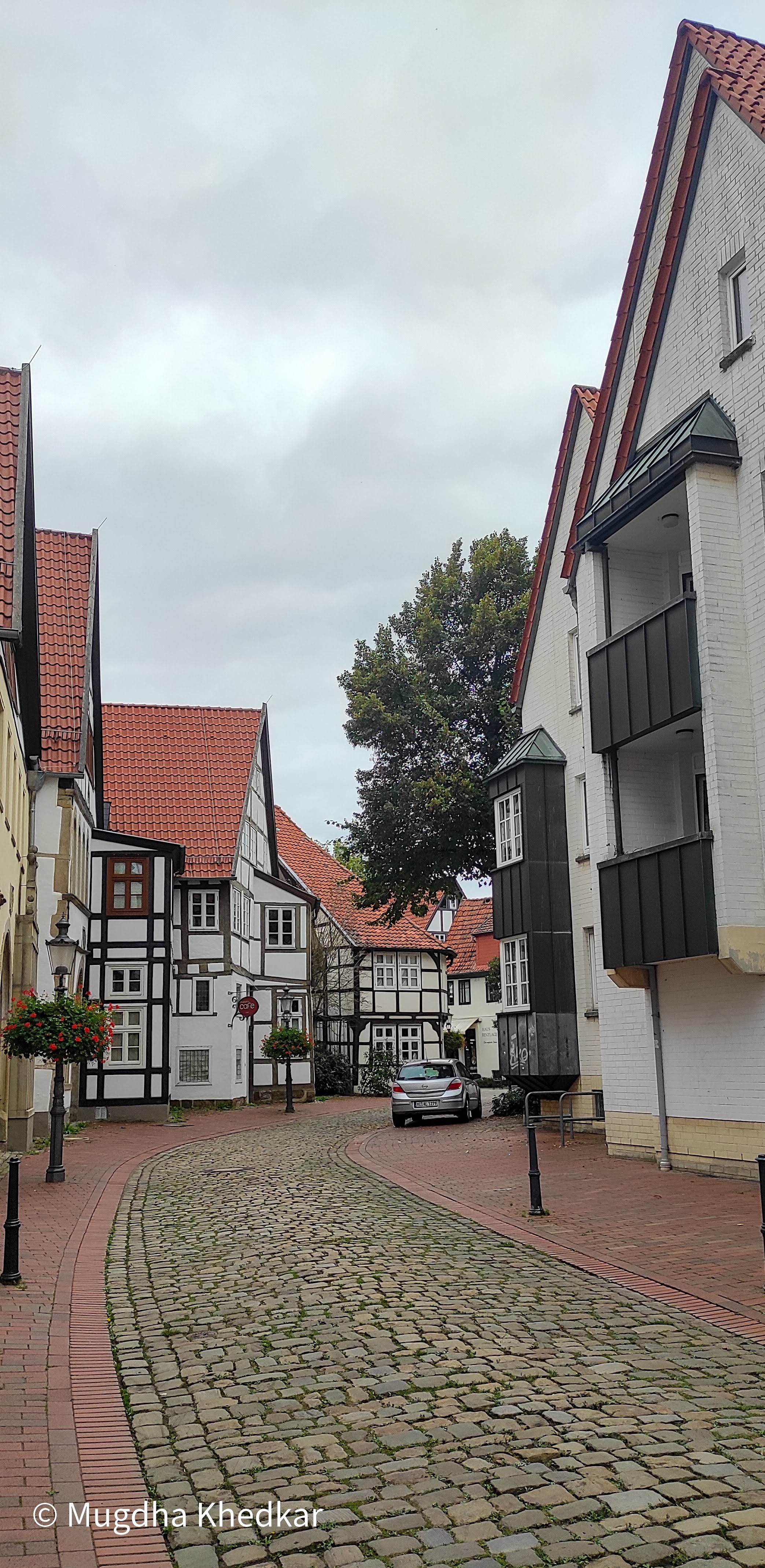
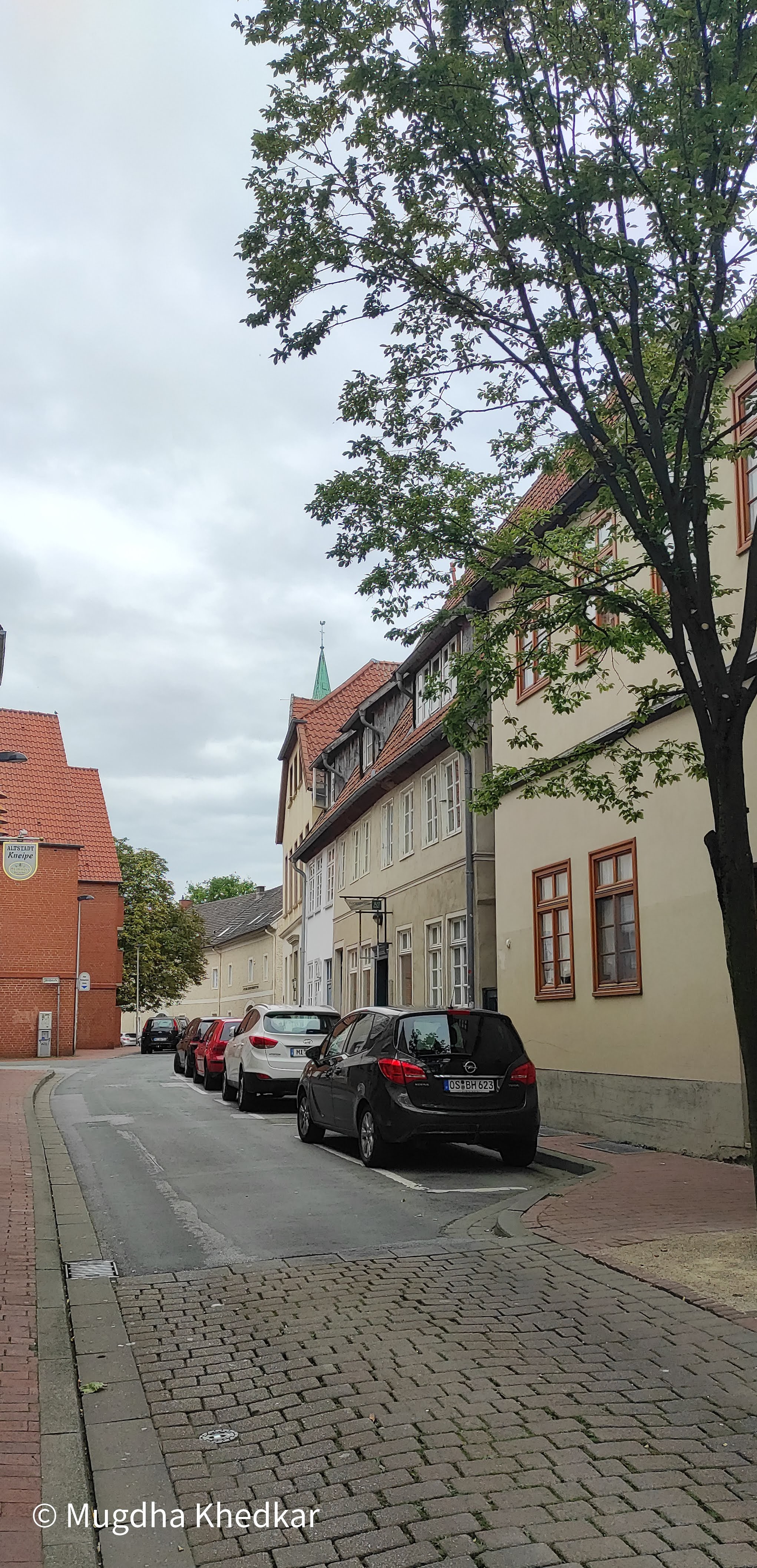
Unfortunately my happy mood did not last for long, as I was harshly reminded of the history of Minden. During World War II, underground factories were built in the Weser Hills and Wiehen Hills near Minden. Slave labourers from a nearby concentration camp were forced to produce weapons and other war material. After the war the machinery was removed by American troops and the entrances sealed. Minden had a relatively large Jewish community and most belonging to that community were deported and dispossessed. The Stolpersteine (stumbling stones) were built on Minden’s pavements as a memorial to them.
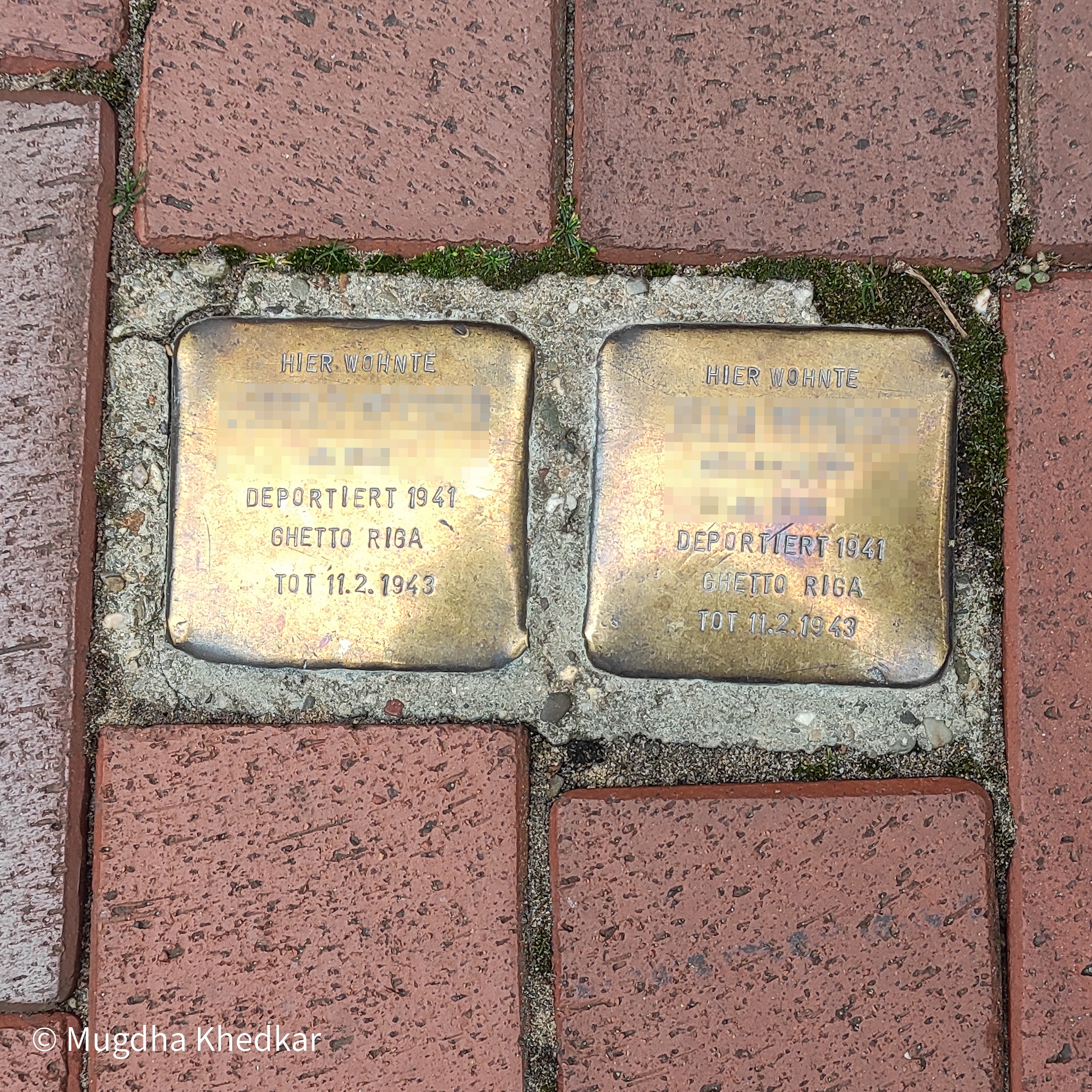
Stolpersteine that read “Here lived name_of_the_person, deported in 1941 and died on 11th February 1943”
Reading those Stolpersteine broke my heart into more pieces than I could count. I truly felt sorry for the departed souls who were killed brutally only because they were Jews, but I shuddered at the thought of what must have happened to them after their deportation and before their death. Minden sustained severe damage from bombardment during World War II. These attacks were minor during the early phase of the war but multiple major raids followed during the war. The last and most devastating air raid was conducted by the United States Army on 28 March 1945. This almost completely destroyed the town centre, including the town hall and cathedral, and resulted in the death of over 180 people.
It took me some time to calm myself down, but this put me in deep thought. I wondered how so many things that I find shocking are just common for Germans: going to a town and finding Stolpersteines on random pavements, finding undetonated bombs in towns and being asked to evacuate your apartment for a safe planned detonation of bombs (Surprised? Check this out for more information), finding a place extremely beautiful and then learning about the devastating history behind it and the list just goes on and on.
The oddly beautiful architecture of the cathedrals and old houses managed to distract me from the wild emotional ride that I had been on as I explored more of Minden.
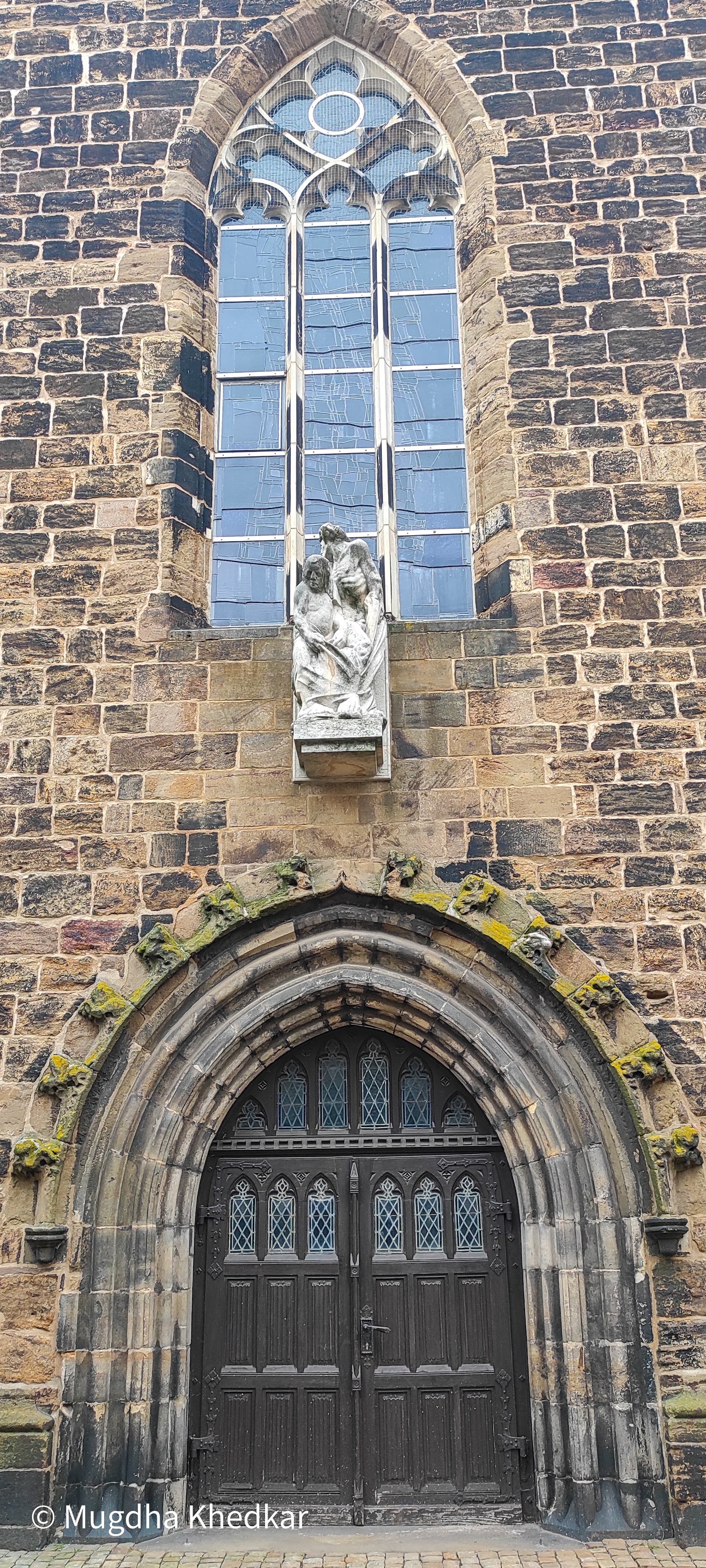
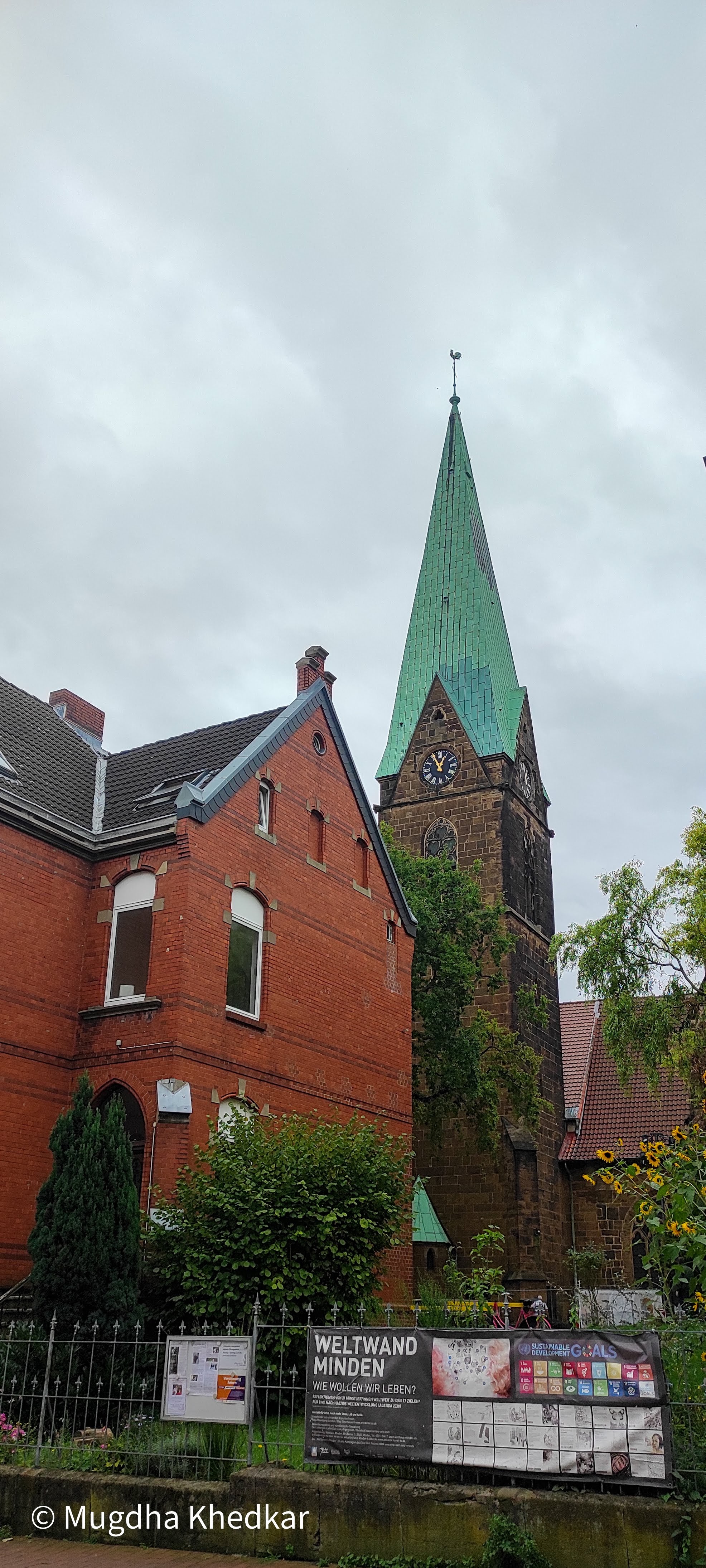
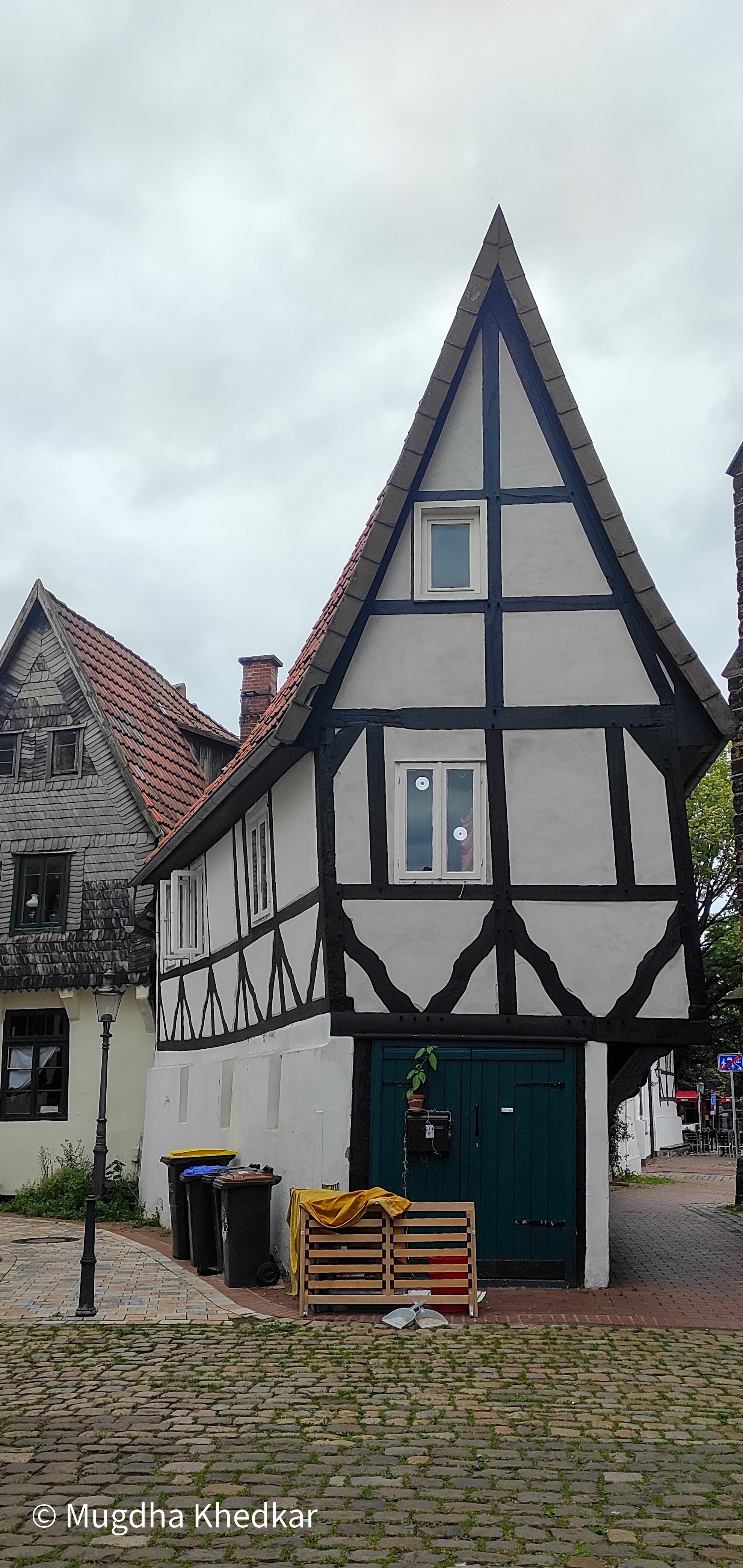
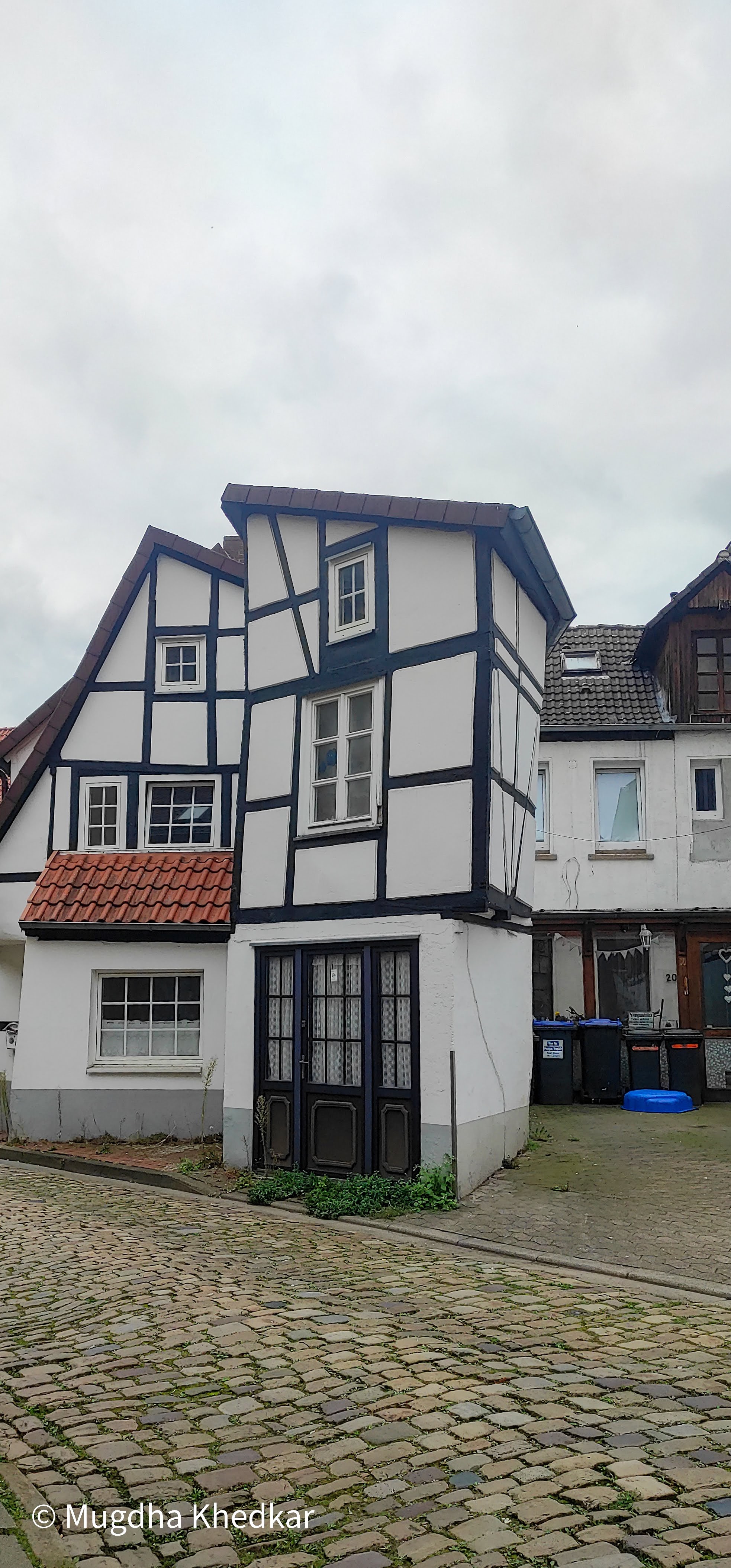
Exploring Minden in all its elegance despite its heartbreaking history was the inspiration behind writing this blog. The emotions that this unfamiliar place evoked in an outsider like me deserve to be written about, talked about and more importantly, shared. Germans born after “the Holocaust” have suffered a lot due to the sins of their ancestors, but they know how to immortalize that history and make sure it never repeats, and Minden is a prime example of that.
